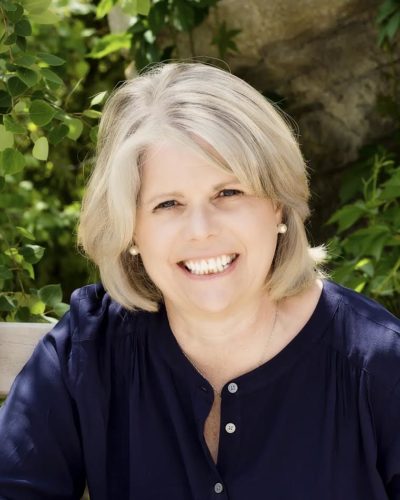
(6-13-19) When her adult son developed a mental illness, Faith Tibbetts McDonald blamed herself. What had she done wrong? Could she have prevented his illness? I asked her to write about how she eventually worked through the blame game and what she learned.
Beyond blame, My personal struggle and resolution
By Faith Tibbetts McDonald.
I was in the grocery store when I bumped into a friend whose daughter was in the hospital being treated for a mental health crisis. I asked how things were going.
Not well. Her teenage daughter hadn’t improved from when she was admitted a week earlier.
“Don’t blame yourself,” I said.
My friend burst into tears. Instinctively, I reached out and brushed one of her tears away.
“Don’t blame your husband, either.”
More tears. I fished in my pocket for a tissue.
“How did you know?” she asked.
How did I know?
Because I have lived in that same space. I’d been where she now was.
A few years ago, our young adult son was fighting anxiety disorder and major depression and losing—big time. My husband Steve and I didn’t know how to get the help our son needed.
To cope, our son drank so much alcohol, so often, that we worried he might be driving drunk.
He denied it. He said he’d never drive drunk, but our persistent, nagging suspicions didn’t diminish.
One night, I heard him drive into our driveway very late—two hours after his shift at a local restaurant ended and right after bars close.
I suspected he was drunk.
The next morning, I called a local police station and asked to speak with an officer. During our conversation, I squeezed back sobs. My throat threatened to close up. I could barely squeeze out words that I never, ever thought I’d have to say, “I’m worried that my son drives drunk. What can I do?”
“I can come and arrest him. Just let me know what time of day he’s likely to drive into your driveway intoxicated.”
The officer’s response was robotic, matter of fact. Like he was commenting on the weather. Or asking me to pass the salt.
I imagined the shame I’d feel if my son were arrested. Right in front of my house. Near the porch where, for years, each morning, I stood and waved good-bye to the school bus. Right on the spot where, each afternoon, I had welcomed him home with a hug. He’d toss his school backpack on the porch, ask, “What’s for snack?” and run off to play with the dog.
I pictured an officer commanding him out of his car and clamping handcuffs around his wrists. If I prompted his arrest, I knew I’d feel deep sadness.
I thought about the catastrophes I was trying to prevent: an accident. Injuries. Deaths. Possible prison time.
I didn’t know what to do. The sobs I squeezed back built up and I thought my ability to stifle them might give way.
“Arrest is one of the things I’m trying to prevent. Are there alternatives?”
His answer: “When there’s a newspaper article about drunk driving accidents, I clip it out and read it to my kids. They know the consequences of driving drunk. They know not to do it.”
That hurt.
I understood the implication. Loud and clear. If I’d parented better, I wouldn’t be facing this complication.
I thought he would help me. Instead, I felt blamed.
I ended the call, laid my head on the table and sobbed.
I didn’t need the officer’s blame.
When I sorted through my memories, I could find a hundred ways to blame myself for our situation.
I could identify a hundred ways to wish I’d parented better.
The day I didn’t make it home to meet the school bus. The day I drank an extra glass of wine in front of my kid to cope with stress. The fact that I brushed off early glimpses of my son’s excessive panic and anxiety, thinking: he’ll grow out of it.
Show me a kid who struggles with mental illness, addiction and resulting legal problems and I will show you a mother who blames herself.
When I wasn’t blaming myself, I blamed my husband.
He blamed me right back.
Maybe you can relate. Maybe what we learned will help you:
If blame functions as a nudge to act differently in the future, act on that nudge. Then, give yourself credit for using blame as a prompt to act differently.
But most often, blame doesn’t lead to good things.
When I blamed myself, I felt mired in frustration, anger and helplessness.
Blame saps energy and diminishes the likelihood that you have the strength to be proactive about anything.
Your loved one who struggles with mental illness needs an energetic, proactive advocate.
So let go of blame.
Blame destroys love.
When I blamed my husband, I wanted to push him away. When he blamed me, a great big gulf opened between us.
Love doesn’t flourish in blame and if a family is going to make it through the long, tough years of loving a child or friend through mental illness, love must be nurtured.
Seek to understand rather than blame.
Lots of times, the impulse to blame oneself or another person is overpowering. Experts who study difficult encounters say that blame indicates that a person feels additional intense emotions. Explore your impulse to blame. Identify and express the emotions that fuel this impulse.
You can express these strong feelings by writing them out and then destroying the paper. I did.
You can express these feelings to a trained professional who can help you develop perspective. I sought help.
You can express these feelings tactfully to the person you want to blame in a quest to learn more about their thoughts and viewpoint. I had to learn this. When I disagreed with my husband’s approach or perspective, instead of rushing to judgement and blame, I learned to ask for more information. I also learned to fully share my perspective.
Both of us find that more information, more perspective often helps neutralize the desire to blame.
*********
Back to our story: Eventually, our son was arrested for driving drunk. Twice. Fortunately, no one was hurt in either incident. Unfortunately, neither arrest resulted in our son getting apt help.
A few years later, he was hospitalized against his will because he was suicidal and had jumped out of a moving car, hoping to flee and harm himself. While in the hospital, he was treated by an astute psychiatrist who diagnosed him with anxiety disorder and major depression leading to a psychotic break.
Since getting on appropriate medication, and working with a trained counselor, our son’s life has turned around. He says that getting on the medication helped him say no to drinking and drugs; before the medication, he wanted to make better decisions but felt powerless to do so.
The daughter of the friend I met in the grocery store is better also. Our situations demonstrate that people with mental illness can get better. Facilitating that journey takes energy, wisdom and persistence. Blaming oneself or someone else is a distraction on that interferes with the journey to health.
We are grateful for our children’s recoveries.
I have learned that gratitude functions as the opposite of blame.
When I focus on expressing gratitude, rather than finding fault with myself or others, I’m in a healthier place with more energy to creatively help my loved son.
About the author: Faith Tibbetts McDonald is an assistant professor of teaching in the English Department at the Pennsylvania State University. As a writer, she has contributed to many magazines and books. Her book On the Loving End of Crazy—One Mom’s Story of Hope and Help will be available later this summer. It’s a mother’s true story about coping when a loved son is crippled by anxiety and depression and after a series of lawless, self-destructive acts, attempts suicide. The book is a candid, moving story written to bring hope and help to people who love someone whose life is unraveling due to mental illness. As one reader says, “After reading Faith’s work, we’ll all be better at the hard stuff.”
For information about the book’s release, contact Faith at faithtmcdonald@gmail.com




